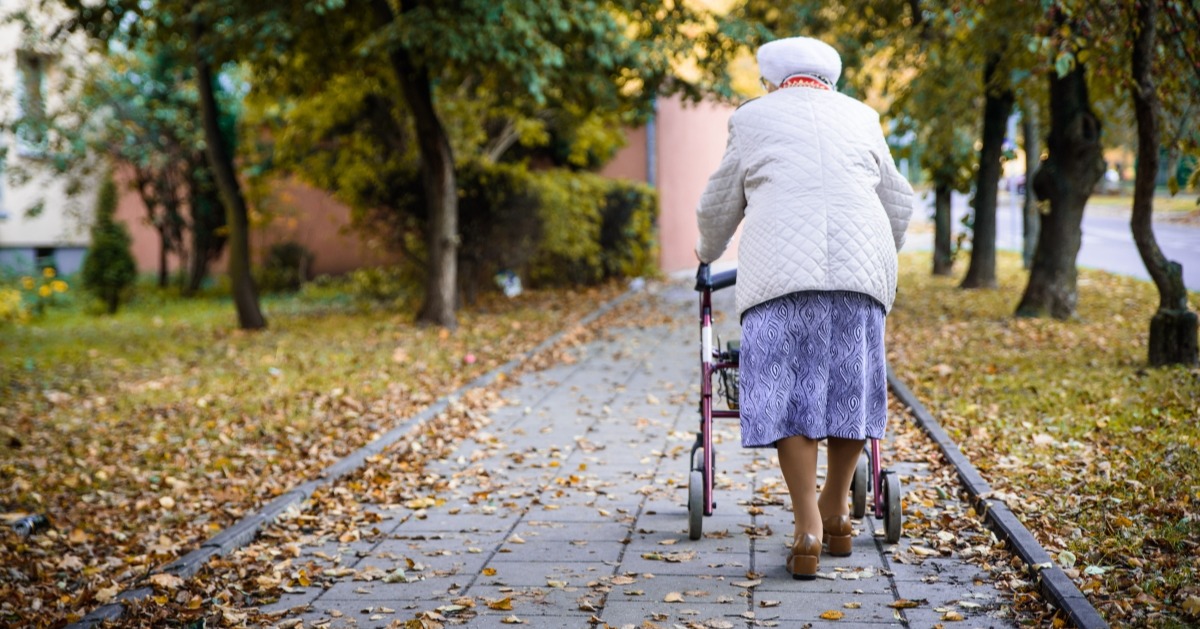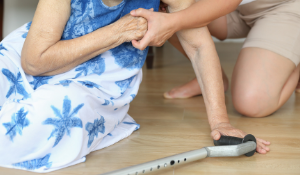The NHS Falls Prevention Service: Reducing the Risk of Falls in the Elderly
As age increases, so too does the likelihood of experiencing a fall. According to the NHS, falls cause 70,000 hip fractures every year and are the leading injurious cause of death in the elderly. They also leave between 30% and 73% of experiencers with a loss of confidence or independence.

This loss of confidence can cause some older people to avoid seeking advice or support services because they feel their concerns won’t be taken seriously. Healthcare professionals, however, have identified that a prior fall is one of the leading indicators of having a fall in the future.
- What Is the NHS Falls Prevention Service?
- An Ageing Population
- The Falls Prevention Service — A Local Example
What Is the NHS Falls Prevention Service?
This is a multidisciplinary service catered to older people who are either at risk of falling or have fallen already. As part of this service, healthcare professionals conduct an assessment and use the findings to create a care plan. This is done in collaboration with the individual to intervene and lower the risk of further falls.
The Falls service is also designed to educate people and raise awareness about preventing falls. Although the functions can vary between locations, the typical functions each Falls service provides are:
- Provide multifactorial risk assessment for those at risk of falling.
- Develop plans centred around patients so they can live independently.
- Reduce the risk of falls and subsequent injuries.
- Educate and raise awareness on fall prevention.
- Deliver interventions.
- Offer assistance with strength and balance training, exercise, rehabilitation and more.
Once patients have been referred, the NHS Falls service tends to work with multiple health professionals, such as nurses, rehabilitation assistants, physiotherapists, occupational therapists, GPs, relatives, carers and more.
An Ageing Population
While in the past older people have often been neglected as a demographic; this oversight is quickly becoming untenable due to the rising proportion of people aged 65 and over in the global population. People aged 65 and over make up 19% of the UK population, well over the global level of 9%.
The preventable effects of falls, the ageing population and the costs associated with increased falls have led to a demand for NHS advice and support that can help reduce the risk of falls in the elderly.
The Falls Prevention Service — A Local Example
The NHS Falls Prevention Service provides assessment, advice and exercise at the local level for older people who are at risk of falling. Another big focus of this programme is to prevent falls and unnecessary hospital admissions by seeing patients before injurious falls occur or after falls to rebuild strength, balance and confidence.
Kent Community Health, for example, comprises West Kent Falls Prevention Service, postural stability classes and intermediate care teams. The Falls Prevention Service is put into practice by a multidisciplinary team that provides a holistic assessment of falls risk factors to help patients achieve maximum independence in their daily lives.
While the Falls Prevention Services vary from region to region, they all focus on reducing risks, making simple changes to the home, improving strength or balance through different types of exercise and ensuring that the eyesight of older people is working as it should.
Gain More Insights in Preventing Falls in Elderly People
Over 50% of falls are preventable and there’s a range of interventions that can truly make a difference in the lives of the elderly. Inside Government is facilitating a one-day online training course on preventing falls in older people.
This interactive course will give you the tools you need to create and embed a tailored fall prevention strategy for your own organisation. If these tools would be useful in your day-to-day work, you can easily register for the course below.




